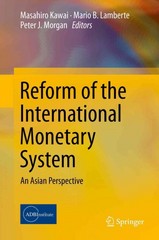Instructions:Clearly discuss and answer the question asked. It should include seven to ten sentences. Use own opinions, you could support it with given facts.
- What do you think is the contribution of women to the economic growth? You could get an information through the picture.
- Will the people's values have an effect on the economic policies that will be crafted by policymakers? Explain comprehensively. ( You could also get an information through the picture.)
The Important Role of Values in Development Economics Economics is a social science. It is concerned with human beings and the social systems by which they organize their activities to satisfy basic material needs (e.g., food, shelter, clothing) and nonmaten'al wants (e.g., education, knowledge, spiritual fulllment). It is necessary to recognize from the outset that ethical or normative value premises about what is or is not desirable are central features of the economic discipline in general and of development economics in particular. The very concepts of economic development and modernization represent implicit as well as explicit value premises about desirable goals for achieving what Mahatma Gandhi once called the \"realization of the human potential.\" Concepts or goals such as economic and social equality, the elimination of poverty, universal education, rising levels of living, national independence, modernization of institutions, mle of law and due process, access to opportunity, political and economic participation, grassroots democracy, selfreliance, and personal fulllment all den've from subjective value judgments about what is good and desirable and what is not. So too, for that matter, do other valuesfor example, the sanctity of pnvate property, however acquired, and the light of incividuals to accumulate unlimited personal wealth; the preservation of traditional hierarchical social institutions and ngid, inegalitarian class sthctures; the male head of house hold as the nal authon'ty; and the supposed \"natural right" of some to lead while others follow. When we deal in Part Two with such major issues of development as poverty, inecpality, population growth, mral stagnation, and environmental decay, the mere identication of these topics as problems conveys the value judgment that their improvement or elimination is desirable and therefore good. That there is widespread agreement among many different groups of peoplepoliticians, academics, and ordinary citizensthat these are desirable goals does not alter the fact that they an'se not only out of a reaction to an objective empincal or positive analysis of what is but also ultimately from a subjective or normative value judgment about what should be. It follows that value premises, however carefully disguised, are an inherent component of both economic analysis and economic policy. Economics cannot be value free in the same sense as, say, physics or chemistry. Thus, the validty of economic analysis and the correctness of economic prescn'ptions should always be evaluated in light of the undedying assumptions or value premises. Once these subjective values have been agreed on by a nation or, more specically, by those who are responsible for national decision making, specic development goals (e.g., greater income equality) and correspondng public policies (e.g., taxing higher incomes at higher rates) based on \"objective\" theoretical and quantitative analyses can be pursued. However, where sen'ous value conflicts and disagreements exist among decision makers, the possibility of a consensus about desirable goals or appropn'ate policies is considerably diminished. In either case, it is essential, especially in the eld of development economics, that one's value premises always be made clear. The Central Role of Women In light of the information presented so far, it should come as no surprise that development scholars generally view women as playing the central role in the development drama. Globally, women tend to be poorer than men. They are also more deprived in health and education and in freedoms in all its forms. More over, women have primary responsibility for child rearing, and the resources that they are able to bring to this task will determine whether the cycle of trans mission of poverty from generation to generation will be broken. Children need better health and education, and studies from around the developing world confirm that mothers tend to spend a significantly higher fraction of income under their control for the benefit of their children than fathers do. Women also transmit values to the next generation. To make the biggest impact on development, then, a society must empower and invest in its women








